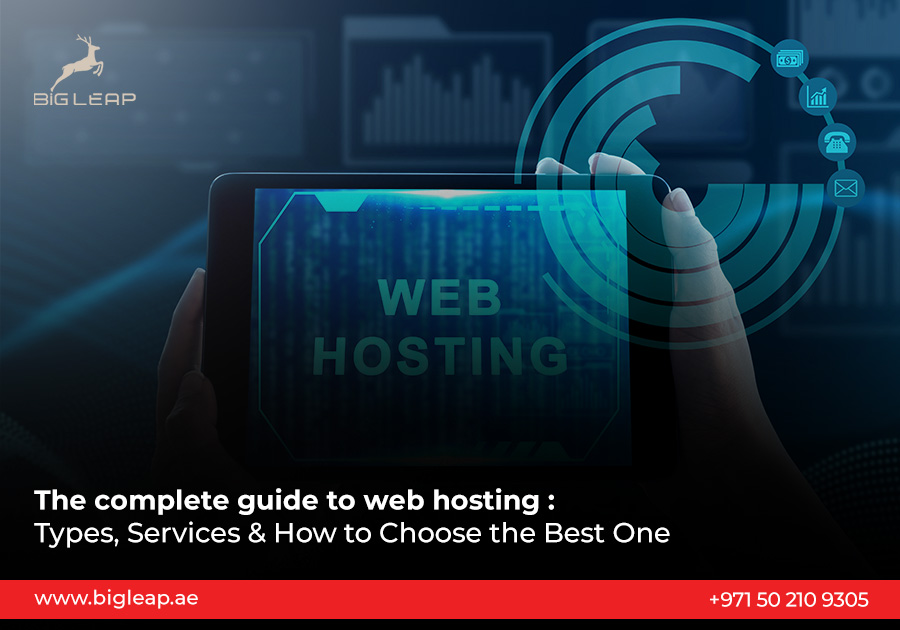


06 May 2025
Whether you're a blogger or a business enthusiast who just launched a startup or full fledged entrepreneur who owns a well reputed company, having a website is important. That goes without saying how important it is to make your website available to the general public.
Web hosting is the two-word solution for publishing your website on the internet. This blog intends to provide the details regarding web hosting, its types, services and how to choose the right one that suits your needs.
Web hosting is a service that facilitates a website to be accessible on the internet. Companies that own servers, also known as web hosts, provide their clients with the features to create, launch and maintain websites.
Isn't it possible to buy your own server? Technically yes, you can. But that comes along with certain complexities. Considering how the back end of the digital information flow works, maintaining a server takes a lot more than meets the eye.
You will have to buy the equipment, set up the infrastructure, ensure there is reliable internet connection, handle all the security management, hardware upkeep and many more, which might be overwhelming for most individuals or small enterprises.
When you approach a website host and render their service, all of these intricacies related to the server are taken away from your shoulder. You rent their space and save your data and information there which is then made available to the public.
In shared hosting multiple websites share the same server. This is a cost-effective option, but it will likely affect the performance of the website. You, along with other websites in that server will share the available disc size and bandwidth.
It includes pre-installed wordpress and is specifically optimized for wordpress sites.
In VPS hosting a single physical server is split using virtualization technology, creating multiple virtual servers that share resources. And each of these virtual servers will be distributed with a fixed RAM and storage facilities.
In dedicated hosting an entire physical server is allotted to host a single website. It allows for the peak performance of the website as no resources are being shared. It is an ideal choice for websites which are resource-loaded.
Also Read: Why Your Business Needs a Strong Online Presence?
Domain name is your unique website address. It is often easier for the users to remember. A simple yet relevant domain name is often recommended and check if the name you selected is available using a domain registrar.
You should register the domain name and it is usually done for a period of 1-10 years.
Secure Socket Layer is a digital certificate that encrypts the data transferred between the user and the website. It also protects confidential data such as passwords and personal data.
There are some key factors to be taken into account while selecting the right web hosting service.
Inorder to build a strong and reliable online presence choosing the right website hosting survive is necessary. There are multiple hosting services that are available. So select the most appropriate one that meets your needs and set the ground for your website to thrive.